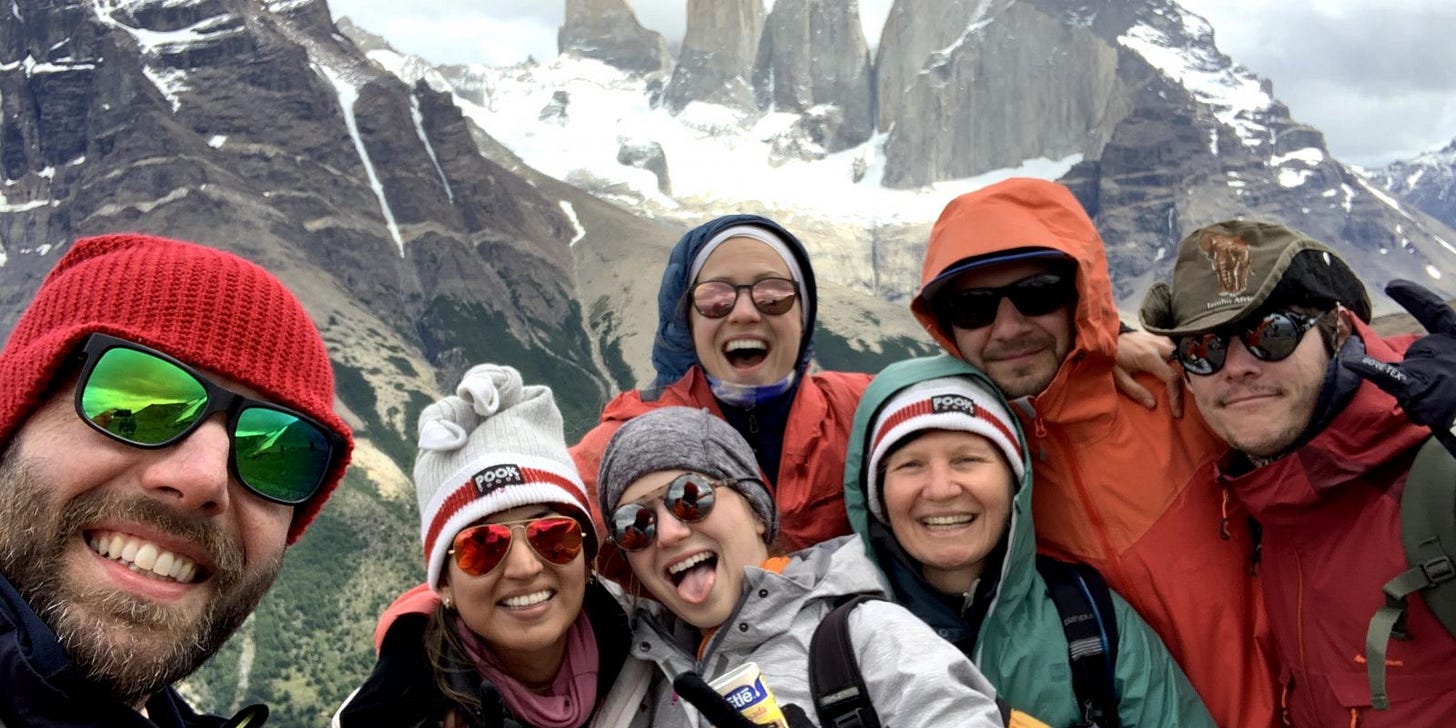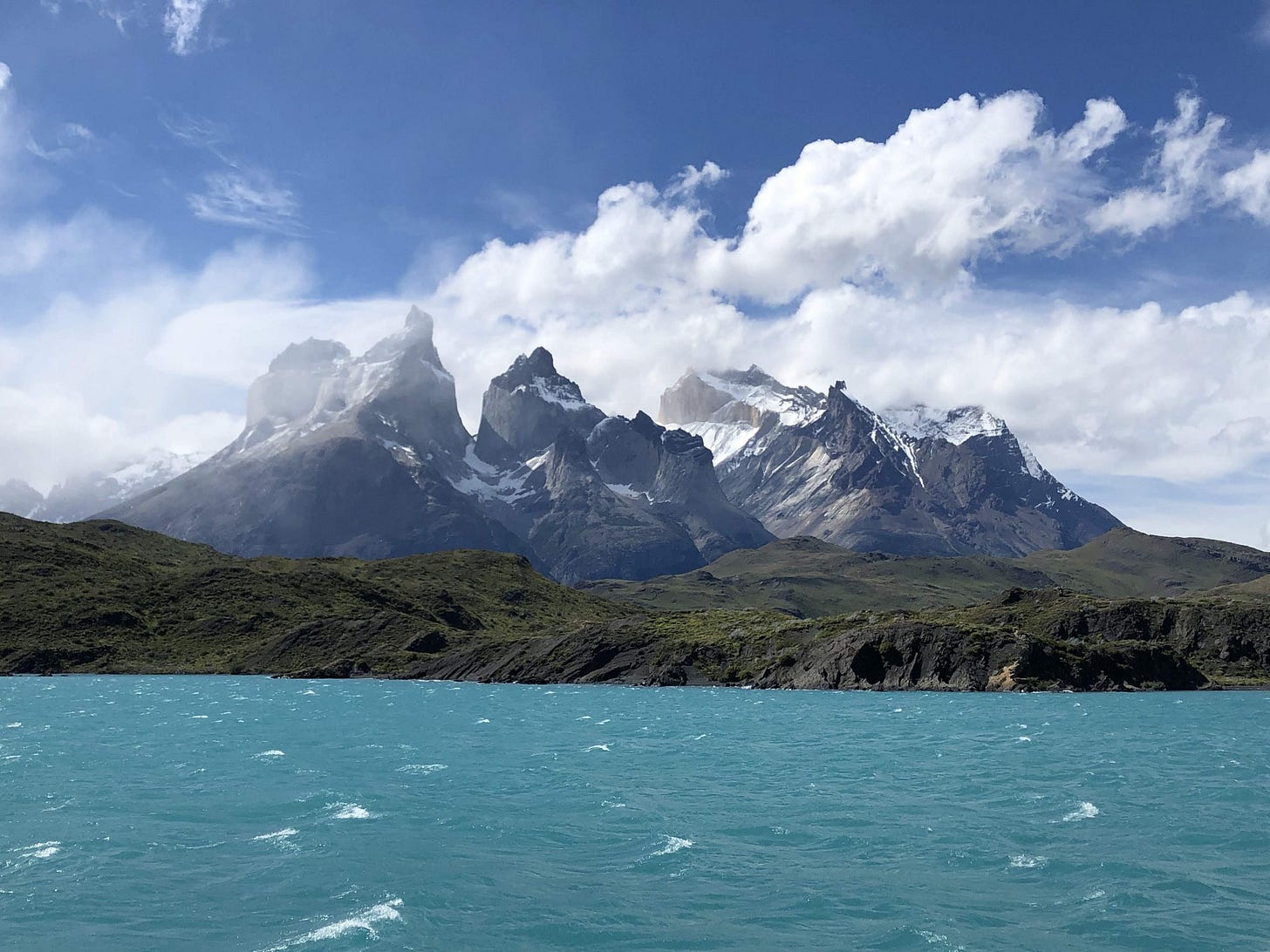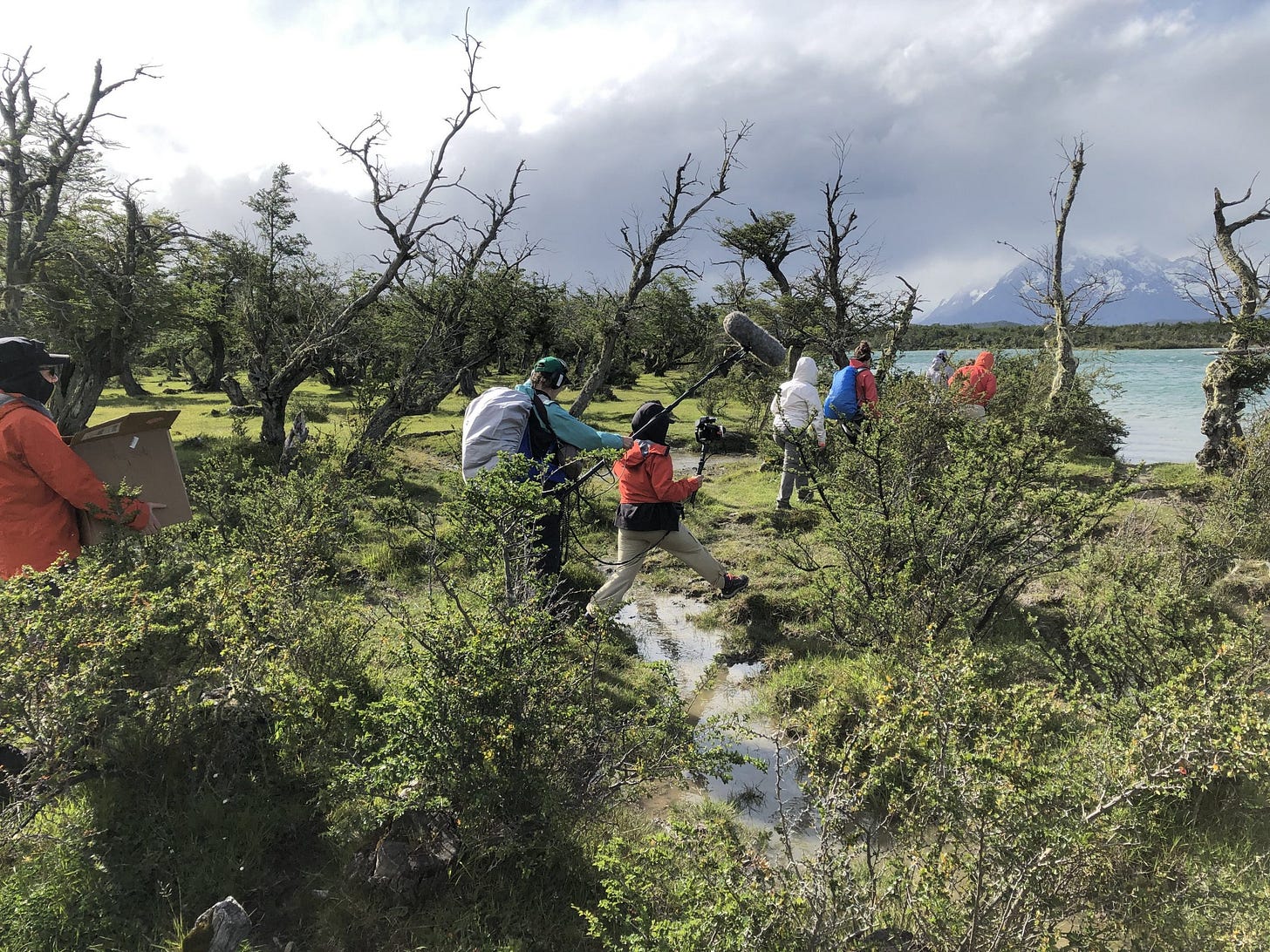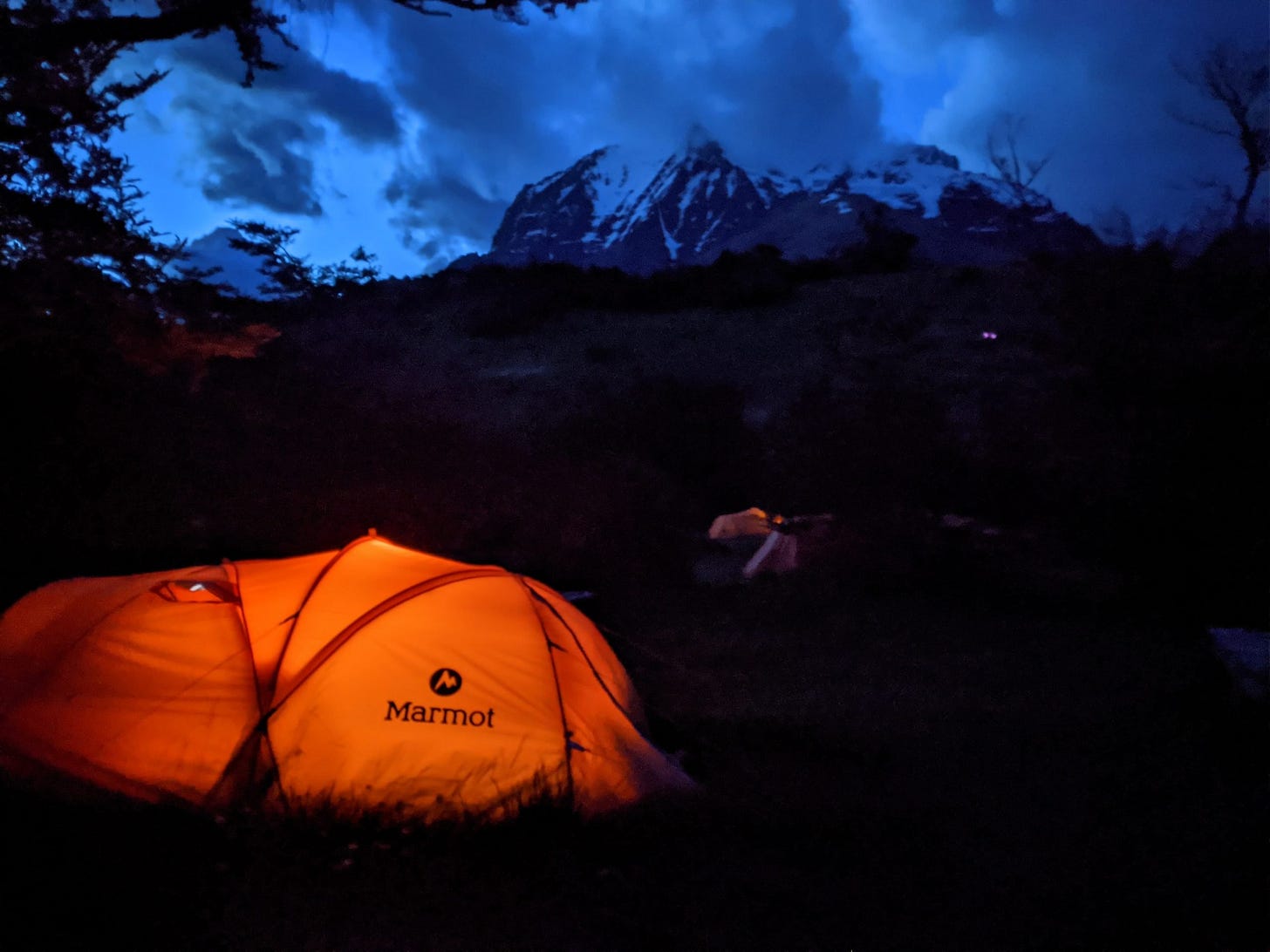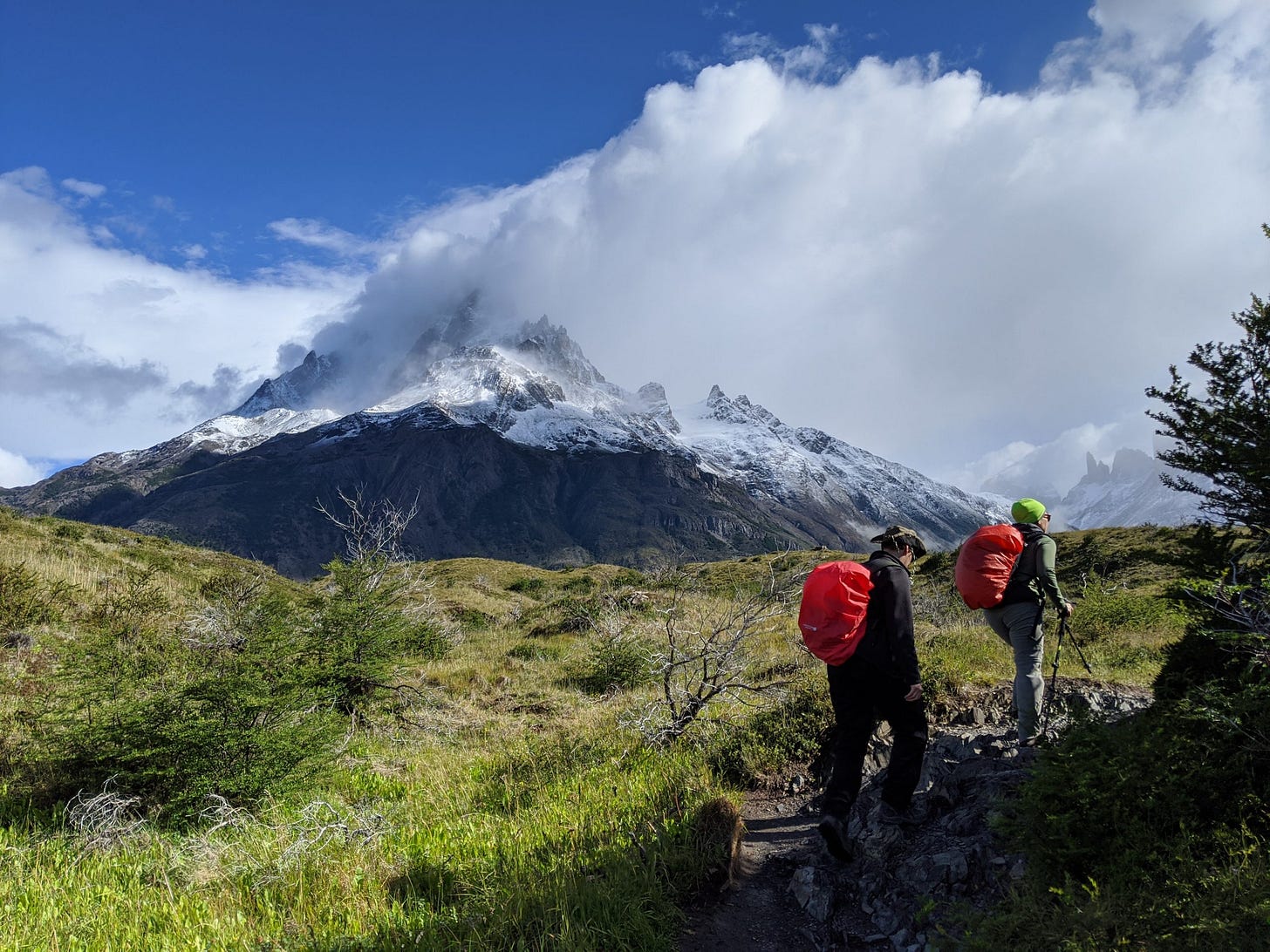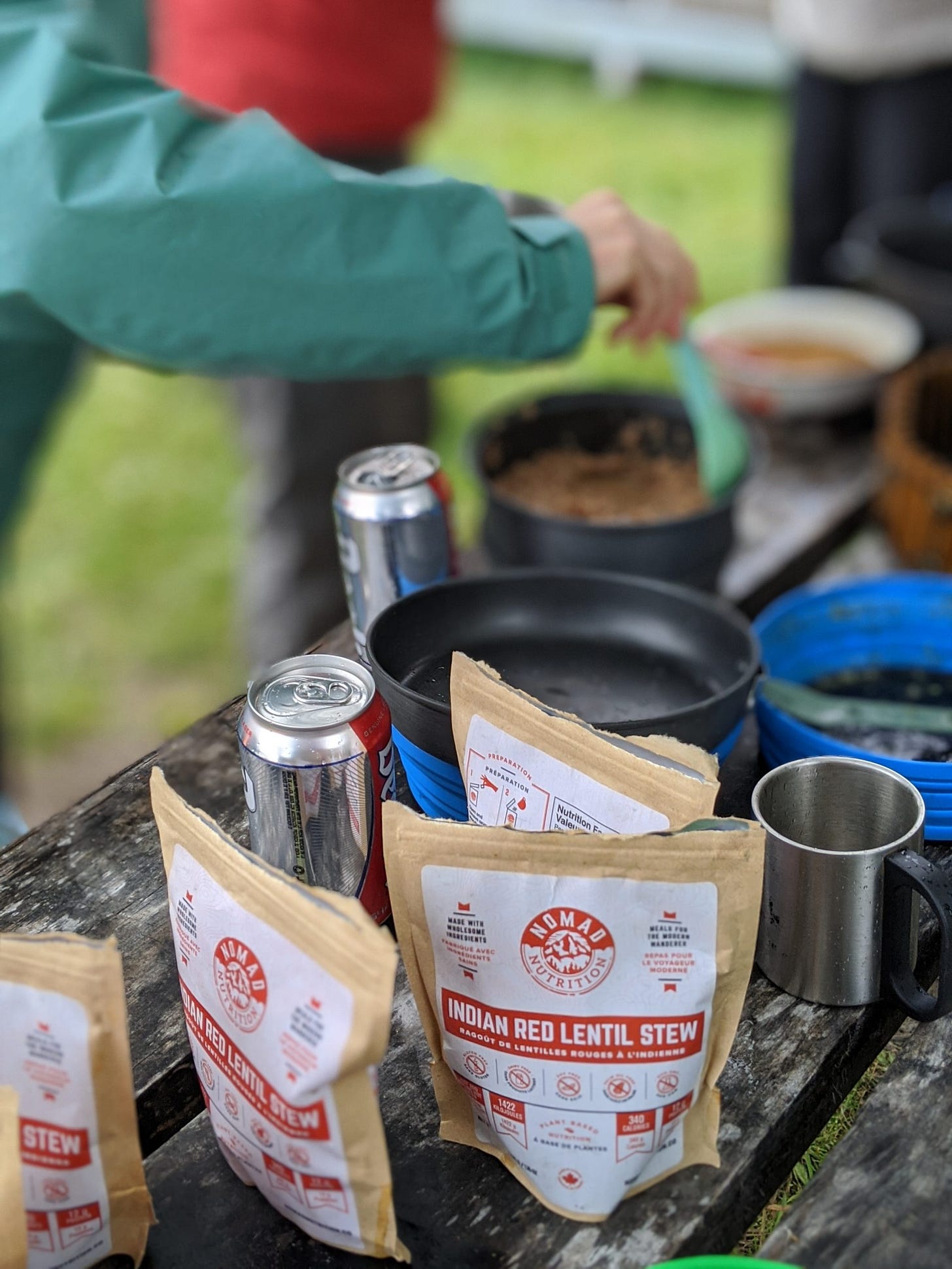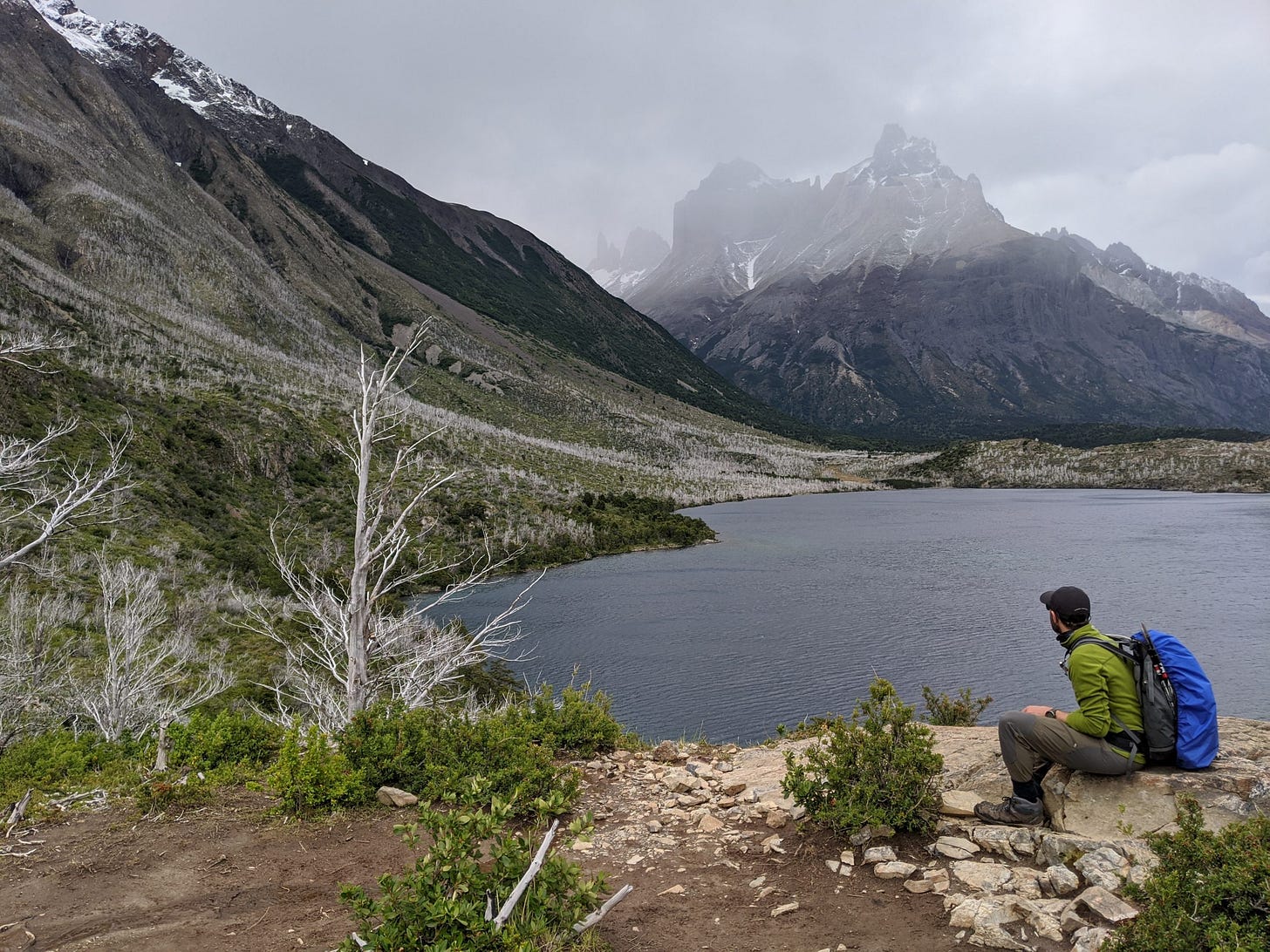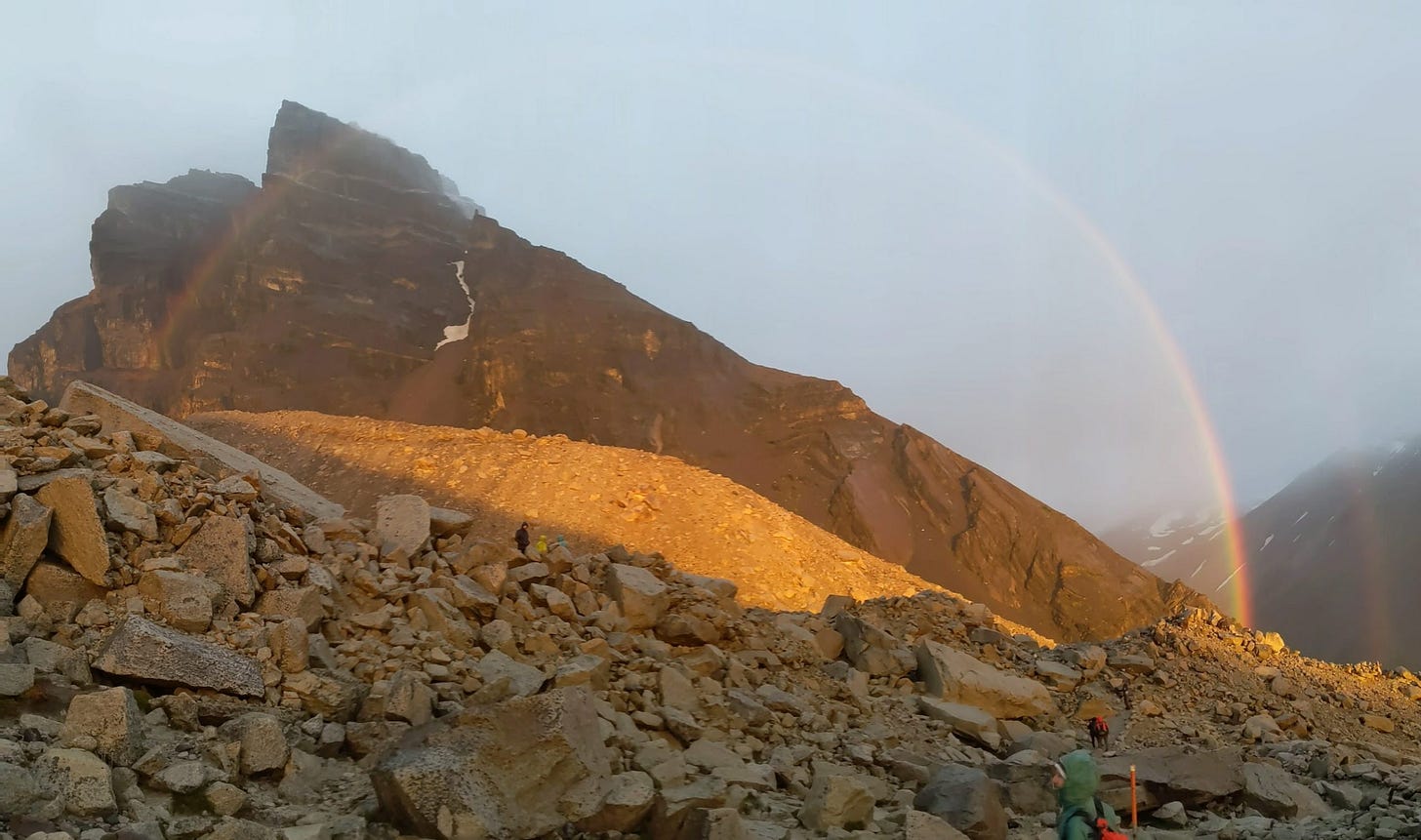Lessons From a First-time Expedition Leader
Now, this story isn’t about a 5000m Himalayan ascent type of expedition, but it definitely felt like I climbed a logistics mountain of that size with no oxygen! In December 2019, over Christmas, I dragged seven people and two film makers, from three countries and four cities, to what is commonly known as The End of the World: the Southern Andes in Patagonia.
Despite having been on many technically superior expeditions before, and helping with preparation, I had never fully organised a trip from scratch, never-mind for 9 people! The many things I learned could warrant a novel, so below are just a few of the most pertinent highlights. But first, a bit of background.
This wasn’t a typical trip. The reason for going was to take my father’s ashes to a place he considered Heaven on Earth. It was a place where we dreamed of going together and even started hatching trek plans, until cancer cut his adventures short. He was a well respected mountaineer and 20-year executive member of the Canadian Alpine Club. Thus, mountaineering expeditions were part of my life from a young age. As my brother said when spreading his ashes at the summit, this trip was like a passing of the torch. Us now doing the leading, having followed him and learned his wisdom for so many years.
When he passed, in an instant lightbulb moment, it became apparent that Patagonia was the only rightful resting place. And just like that all seven of us – me, my mom of nearly 60 (and fit as hell), my siblings, and our spouses – were heading to Patagonia. Then, to make things a tad more interesting, I had another lightbulb moment at my annual visit to Banff Film Festival: that we should make a documentary! And so, our group of seven grew to nine, with two film makers joining us.
Our objective was to do the W trek of the spectacular Torres Del Paine national park, as well as two off-the-beaten-path objectives: summit Mount Ferrier and Cerro Paine.
In the end, we had several unpredictable obstacles thrown at us, but due to meticulous preparation were able to go with the flow, rearrange, and still complete all our objectives. Here are the lessons that, in hindsight, were most useful to a smooth and immensely enjoyable adventure:
1. Have wiggle room in your schedule, with options for mixed ability levels
Day one obstacle: my sister forgets a piece of paper at the airport car rental desk on Argentinian side of Patagonia. She and her partner get turned away at the Chilean border and arrive 24 hours later, when we should be on our first summit doing the ashes ceremony...
Disaster? Not at all. Our saviour for this and a few other unexpected turns was the schedule cadence. The days alternated from strenuous objective, followed by a transit day with optional shorter/easier objectives. The transit days acted as a rest day option for more novice members and were a buffer for any surprises. What also helped was that we stayed two or three nights in each camp. This meant there was one ‘serious’ objective per camp and we could alternate days for weather if needed.
2. Meticulous research of details, especially when in such a remote and unfamiliar place
We found information on official websites was patchy and didn’t cover a lot of the gritty detail. All the hours spent on forums and blogs paid off big time. Little details like knowing where you needed cash, what required permits, that you’ll struggle to buy white gas in major towns because most people use propane (white gas is the dominant alpine stove choice in Canada), that you can’t expect to find nut butter in stores, that Chile is hella strict on bringing food across the border…and many more. Sounds common sense, but forum trawling saved us a lot of disappointment. There's no way we could have winged it with nine people.
3. Delegate, with explicit instructions, then don’t micromanage
Perhaps it’s the control freak in me, but I find it hard to delegate especially on a trip of this magnitude. Yet, it’s necessary to not stretch yourself thin, giving each trip element enough meticulous planning and research (as per previous point).
The approach I settled on was delegating explicitly. For example, my brother’s job was to learn the camp stoves (which were all borrowed and different) and calculate fuel amounts. When the stove’s owners did a demo for us, I video recorded this for my own peace of mind and then I stayed out of it. During the trip, my brother and husband ended up totally owning getting stoves running and water boiling at each meal and I never commented or got involved. It was their thing.
Similarly, my mom and I decided on a rough menu structure, and then she was totally responsible for finding (and taste testing) all the specific items, determining who needed to pre-buy what, and making local shopping lists. It was a huge amount of work off my shoulders and a huge success.
On the contrary, I asked my sister to be responsible for bringing a Christmas pudding, since she was gluten free, and I wanted one we could all share. I didn't explicitly say it was to be for all nine people and we ended up with a single serve portion on Christmas Day! Luckily, there were treats sold at a visitor centre!
4. Accept that in larger groups you will have smaller cliques, this is a good thing
Sometimes there’s a tendency to want to look after the whole group and I can feel guilty leaving people behind.
Yet subgroups will naturally form in the planning stage with people coming from the same locations and, on the trip, with people of similar ability. Initially I tried to create epic spreadsheets of 30+ columns to lay out various logistics options from all our four locations. I also tried to create a walking pace and break rhythm that suited everyone. It wasn’t necessary. By hike two we found our groups. What mattered was being very clear the night before and again in the morning what the plan was, where we were ultimately meeting, and who was sticking with whom.
5. Don’t let money splitting become a sore point
Yes, some touchy money conversations are unavoidable, but they are much better had before the money is spent. As a leader, estimate in advance roughly how much the trip will cost. Agree if anyone feels certain things will be split by some not all. Agree how to deal with communal equipment that ultimately someone will keep. For example, we bought a UV filter and new first aid kits, and since we live in different countries someone had to keep them despite all splitting their cost. Perhaps people that do all the planning work (and rack up interest on their own credit cards for advance bookings) should keep them... but that’s up to your own group to decide.
We also used the free Splitwise app to track purchases along the way, which was immensely helpful to ensure no costs were forgotten. I wish we started using it earlier (rather than when we met on location). I also wish I updated people on increasing cost per person as prices for things like cars and flights rose steeply since the initial estimate.
Thankfully I insisted on team video calls every few months to ensure everyone was on the same page. These sometimes felt tedious, but were very helpful in hindsight.
6. Food. I could write a book on this
We aren’t the pasta and canned tuna kind of people. Nothing wrong with that, you’ll save days in planning, but it’s just not us. With nine people and no hired chef, we didn’t even try to assess individual preferences – except for allergies, we didn’t cater for likes/dislikes. Our approach was a vegetarian menu, but one that was high in protein, nutritionally dense, and with no added crap. The range of good quality freeze dried and dehydrated meals these days is incredible! However, what we did was create a list of items for people to BYO: protein powder, meat jerky/ snacks, preferred energy bars and rehydration powders, additional treats/alcohol. This approach was hands down a winner.
7. Prescriptive packing list
This was especially important with people of less experience, who don’t own a lot of gear and don’t know the 4-seasons-in-a-day way of mountain “summer”. I continuously reiterated that while people could choose to bring more or less of some items (socks, tops etc) that everything on the list was necessary. For example, there were a couple of people who didn’t have rain pants and didn’t feel they’d need them in ‘summer’. Leading up to the trip I sent hourly rainfall forecasts for the region (it rained a lot).... Everyone ended up bringing some and wore them DAILY. As the leader, there’s nothing worse than dealing with miserable wet people.
8. Beg and borrow to keep costs down
Again, with mixed levels of experience, not everyone had kit at home, but before you send people to buy expensive gear that will later collect dust (or worse, have them buy cheap low quality stuff), ask around. Once you get over the cringe factor of asking, it’s well worth a shot. We borrowed lightweight mats, sub zero sleeping bags, four stoves, large cooking pots all through the climbing club (thank you ACC Toronto!) – and obviously, bring nice edible souvenirs in return.
This is far from an exhaustive list of what I learnt. In the end, nothing was perfect, but instead of being disasters these curve balls just made it more memorable. It definitely felt like Dad was there all along, giving us these little challenges, reminding us that Nature is boss. But every time something went wrong, we’d later see a rainbow - I kid you not*. Yet being prepared, and being in it together, we came away thinking it was all imperfectly perfect.
Words and images by Veronika Bridgman.
I was born to mountaineering parents in Ukraine, so the love for outdoors was literally part of my DNA. I’ve since lived in and explored the mountains of Canada, wilderness of Australia, highlands of Scotland and am now in England. Yet Patagonia was unlike anywhere else, and I’m excited to be making a film about our adventure. For more photos and eventual film details follow @patagoniawish on Insta or Facebook.


